Hi friends-
Last week we sent you a video update from Jenn. If you watched it, you know that we are safe and doing what we can to support our communities during this especially difficult time.
We’ve received so many comments, emails, & messages over the past week. The fact that you are checking-in really means a lot to us.
Thank you to everyone who joined us last Sunday afternoon on Zoom for our question & answer session.
It was encouraging to be among people who truly care about Haiti and the work that Second Mile Haiti is doing. Seeing the faces of caring supporters on screen was the best way to spend our Sunday night and we plan to do it again soon.
Next time we won’t forget to hit record or take a “group photo.”
This week our news is similar. Things have remained calm throughout Northern Haiti where Second Mile Haiti’s two campuses are located. Most businesses and schools are still open.
Our centers are all open and operating at full capacity.
Currently, we are not directly affected by the rising gang violence you may be seeing in the news. Nor are we directly in harm’s way. However, the thing we are most worried about now is the prospect of shortages of food, gas, and essentials like medications.
About 1 million of Haiti’s 11 million people are reaching famine levels of hunger and food insecurity related to the current political and economic crisis.
More than 350,000 people have been displaced. Many of those people have been making their way to cities in Northern Haiti, including Cap Haitien, because it is an area of relative safety.
The airport in Cap Haitien (one of Haiti’s two International Airports) has been closed for over a week. The airport’s closure means that there are now no international flights coming into or leaving from Haiti.
So, what did the week look like for us at Second Mile Haiti?
After our zoom call on Sunday evening we were surprised by a few donations which allowed us to jump into action on Monday morning.
On Monday we were able to buy medications for all four of our health centers including our 2 Maternity Centers and 2 Malnutrition Treatment Centers.
Tuesday, we were able to put more Formula and Milk on our shelves before it becomes more expensive and harder to find.
On Wednesday, we focused on water.
We tested and replaced various water filters and added a few more bucket filter stations at our centers so that the Maternity Center clients and caregivers at our Malnutrition Treatment Centers can bring home some clean drinking water when they come for visits or leave for the weekends.
Sometimes, the best place to start is the basics.
On Thursday, we broke out the bikes.
We purchased several bicycles because during the major countrywide fuel shortage we spoke about often in 2021 & 2022.
The bicycles became a great, gas-free way to travel especially on the rural roads around our centers. Some of our employees even borrowed the bikes to travel to and from work each day when no vehicles in circulation.
Since fuel is once again scarce (and expensive!), we purchased new tubes and tires and brought in two local bike mechanics to make all the necessary repairs.
The mechanics worked their magic and the bikes are back in play!
There’s nothing quite like the smile of a grown person taking a bicycle for a spin.
The laughter and enjoyment expressed during these “test rides” brought some much needed fun to the week.
Finally, on Friday, we started working on a “Staff Store.” We’ve purchased some bulk food items (like rice, oil, spaghetti, dried fish, and flour) and starting this week, employees can buy from within without any additional markup or added transportation expense.
It’s a small way to help their funds and their support for their families to go farther during this time.
Next, we will be turning our focus our neighbors.
Typically our agriculture teams travel to areas where families from our Malnutrition Program live in order to help these parents and their neighbors start vegetable gardens. The trips are one of the few instances where we rely on gasoline, as the teams often travel an hour or more by motorcycle to reach these locations.
Since fuel costs have risen and gasoline is harder to find, we’ve decided to concentrate our efforts closer to home.
Next week, we will turn our attention to the women and youth within walking or biking distance of our centers and help those families to increase their yields and the variety of foods they’re growing at home.
Your support means everything to us during this time. We are so grateful to our Kolektif of monthly supporters and to each of you who have expressed a desire to help during this time of unimaginable hardship for the people of Haiti.
Your continued support means that we can continue to do what we do best:
Meet immediate needs. Invest in families. Invest in Haiti.
We won’t be posting any fundraising needs on social media or many of the specifics of what we are doing from day to day.
By keeping a lower profile, we are able prioritize the safety of our team and our beneficiaries. Instead, we will continue to share updates with you here.
What are those needs?
While our residential Malnutrition Centers can only support 40 families at a time, our Outpatient Program can and needs to grow.
The Outpatient Program is how we help families who still need immediate care when our residential beds are full. Contributions made today will ensure no one is turned away.












